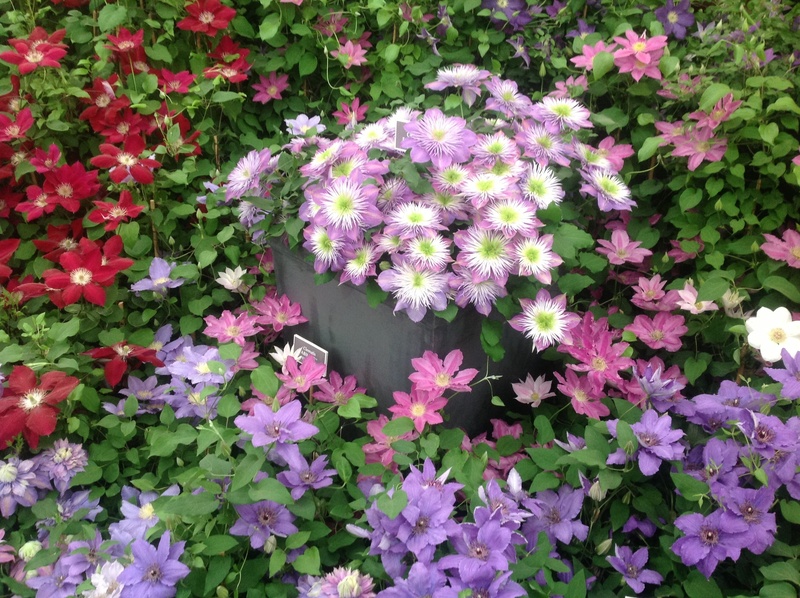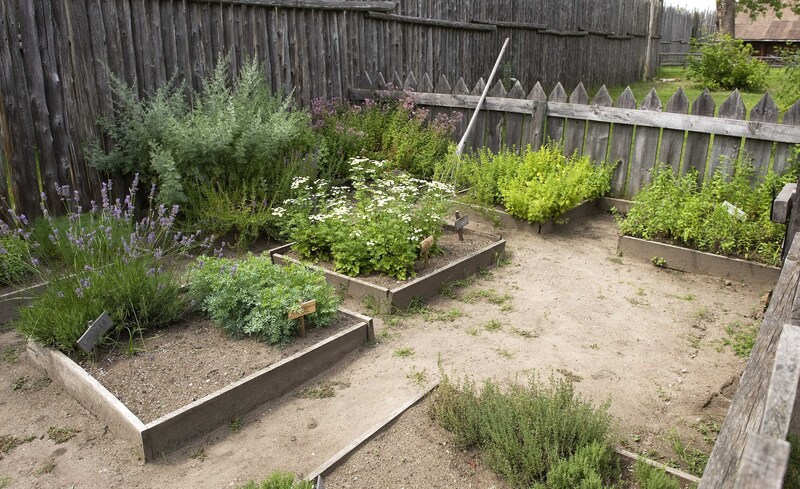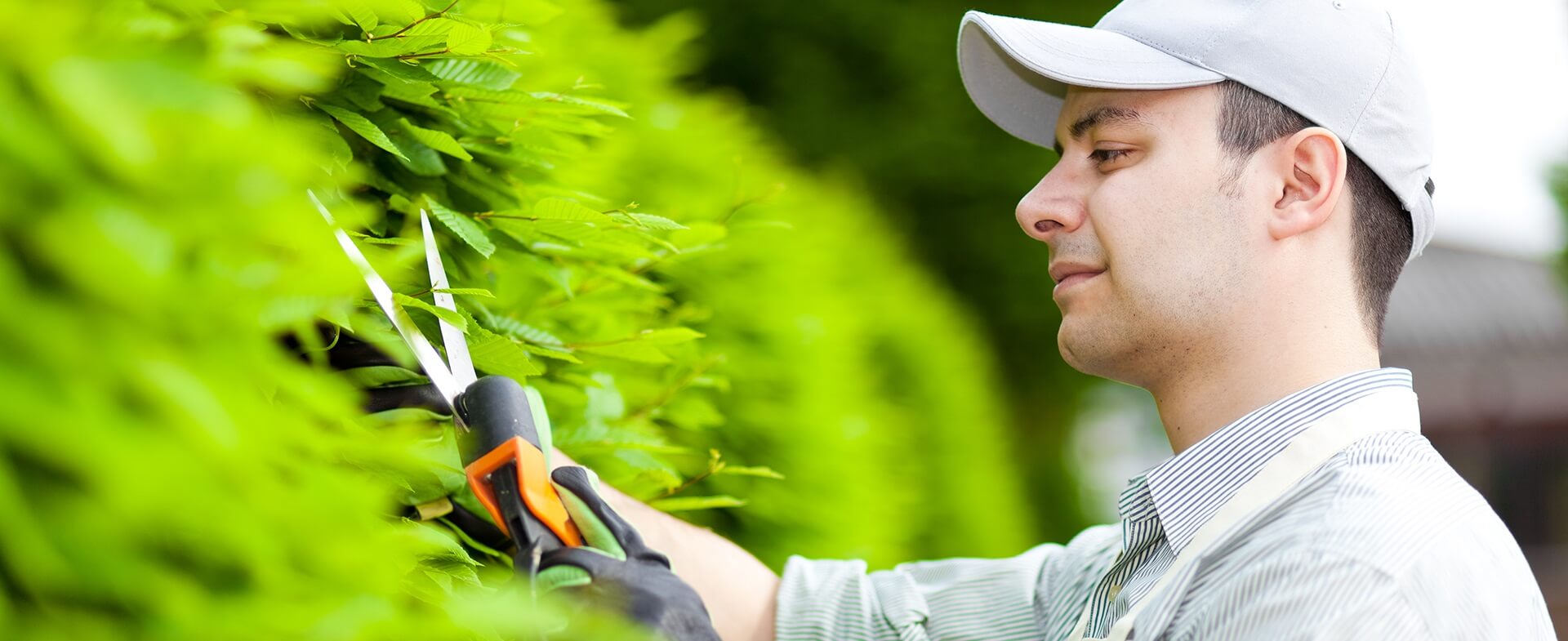Essential Herbs for a Home Garden
Posted on 10/06/2025
Essential Herbs for a Home Garden
If you're looking to diversify your green space while adding flavor and health benefits to your daily life, cultivating a herb garden at home is the perfect solution. Essential herbs are the backbone of culinary, medicinal, and aromatic uses in households worldwide. Whether you're a beginner or have years of gardening experience, growing your own herbs brings freshness to your meals, boosts your wellness, and enhances your home's natural beauty.

Why Grow Your Own Herbal Garden?
There are countless benefits to growing essential herbs in your home garden. Here are a few compelling reasons:
- Freshness: Homegrown herbs provide unparalleled flavor, aroma, and nutrients compared to store-bought options.
- Accessibility: Picking herbs straight from your garden saves time, money, and eliminates unnecessary trips to the store.
- Sustainability: Growing herbs supports eco-friendly living and reduces your environmental footprint.
- Health Benefits: Many herbs offer antioxidants, vitamins, and medicinal properties to help boost your wellbeing.
- Visual Appeal: Herb gardens add lush green beauty, texture, and fragrance to any home setting.
How to Choose The Best Herbs for Your Home Garden
When selecting herbs for your garden, consider the climatic conditions of your region, the space you have available (backyard, balcony, or windowsill), and your household's culinary and medicinal preferences. The best herb gardens usually combine easy-to-grow classics with your personal favorites.
Factors to Consider:
- Sunlight requirements
- Soil type and drainage
- Watering needs
- Growth habits (bushy, spreading, upright)
- Companion planting opportunities
- Intended use: culinary, medicinal, or ornamental
Top Essential Herbs to Grow at Home
Let's explore a list of must-have plants for your home herbal garden. Each herb offers unique flavors, aromas, or health-enhancing properties that will transform your kitchen and living space.
1. Basil (Ocimum basilicum)
- Main uses: Culinary classic, especially in Italian and Southeast Asian dishes
- Health benefits: Packed with antioxidants, anti-inflammatory compounds
- Growing tips: Needs full sunlight, well-drained soil, regular pinching for bushiness
Basil is one of the most essential herbs for a home kitchen garden, known for its vibrant green leaves and aromatic flavor. It's perfect for pesto, salads, soups, and garnishes. Regular harvesting encourages bushy growth, so don't hesitate to snip off leaves as you need them.
2. Mint (Mentha spp.)
- Main uses: Refreshing teas, desserts, cocktails, and savory dishes
- Health benefits: Aids digestion, relieves nausea, possesses antibacterial properties
- Growing tips: Thrives in part sun to shade, can be invasive--plant in containers to control spread
This herb garden essential is renowned for its invigorating aroma and versatile culinary applications. There are many varieties, including spearmint, peppermint, and chocolate mint. Mint's rapid spreading habit means it's best grown in pots or confined spaces.
3. Parsley (Petroselinum crispum)
- Main uses: Universal garnish, salads, sauces, soups
- Health benefits: Rich in vitamin C, iron, and antioxidants, supports immune health
- Growing tips: Prefers partial shade to sun, consistent moisture, and well-drained soil
Flat-leaf and curly parsley are both indispensable additions to any kitchen herb garden, valued for their fresh, bright taste and high nutrient content. Regular trimming encourages healthy, full plants.
4. Rosemary (Rosmarinus officinalis)
- Main uses: Roasted meats, potatoes, bread, and oils; stunning landscape plant
- Health benefits: Enhances memory, relieves stress, high in antioxidants
- Growing tips: Needs full sun, loves well-drained soil, drought-tolerant when established
This woody perennial is a cornerstone herb in Mediterranean cuisine and ornamental gardening alike. Its needle-like foliage and blue flowers attract pollinators and thrive as a border or potted plant.
5. Thyme (Thymus vulgaris)
- Main uses: Soups, stews, roasts, stuffings
- Health benefits: Antimicrobial, anti-inflammatory, supports respiratory health
- Growing tips: Prefers full sunlight, tolerates poor soil, low watering needs
Thyme adds a subtle earthiness to dishes and is an essential herb for seasoning meats and vegetables. Due to its low growth habit, it makes a great edging plant for paths or beds.
6. Oregano (Origanum vulgare)
- Main uses: Italian and Greek cuisine, pizza, grilled vegetables
- Health benefits: Potent antiseptic, antifungal, aids digestion
- Growing tips: Full sunlight, well-drained soil, drought-tolerant
This pungent herb is a must-have in home herb gardens, especially for lovers of Mediterranean dishes. It's easy to dry for winter use and can be harvested all season long.
7. Chives (Allium schoenoprasum)
- Main uses: Toppings for baked potatoes, salads, omelets
- Health benefits: Rich in vitamins A and C, boosts immunity
- Growing tips: Tolerates a variety of soils; thrives in sun to partial shade; easy to grow in containers
With their mild onion flavor and attractive purple flowers, chives are perfect for both culinary use and ornamental appeal in any herb garden at home.
8. Cilantro (Coriandrum sativum)
- Main uses: Salsas, curries, salads, and garnishes
- Health benefits: Detoxifying, rich in antioxidants, aids digestion
- Growing tips: Prefers cooler temperatures, regular watering, bolts quickly in heat
Both the leaves (cilantro) and dried seeds (coriander) are used in diverse global cuisines. Frequent sowings will keep you supplied throughout the season, making it a key herb for kitchen gardens.
9. Sage (Salvia officinalis)
- Main uses: Stuffings, poultry, fish, and herbal teas
- Health benefits: Supports oral health, memory, and has anti-inflammatory properties
- Growing tips: Full sun, well-drained soil, drought-resistant
The silvery-green leaves of sage make an attractive addition to gardens and provide a punch of flavor, especially in heartier dishes and herbal infusions.
10. Dill (Anethum graveolens)
- Main uses: Pickling, salads, fish dishes, yogurt sauces
- Health benefits: Aids digestion, rich in calcium and iron
- Growing tips: Thrives in full sun, well-drained soil; tall stems may require staking
Dill's feathery fronds and umbrella-like flower heads are as decorative as they are delicious. It's a must if you love cooking with fresh herbs or preparing homemade pickles.
Bonus: Lesser-Known Herbs to Elevate Your Garden
- Lemon Balm (Melissa officinalis): A calming herb for teas and desserts, known for its pleasant lemon scent.
- Tarragon (Artemisia dracunculus): Essential in French cuisine, adds a unique licorice note to dishes.
- Lovage (Levisticum officinale): Tastes like celery, used in soups and stews.
- Marjoram (Origanum majorana): Milder than oregano, great in sauces and dressings.
- Sorrel (Rumex acetosa): Tart, lemony leaves ideal for fresh salads and sauces.
Incorporating these additional herbs into your home garden will elevate your culinary repertoire and introduce you to new, exciting flavors.
Tips for Growing and Maintaining Your Home Herbal Garden
1. Start Small and Grow as You Learn
If you're new to herb gardening, begin with a handful of easy-to-grow varieties, such as basil, mint, or chives. Expand your selection as you gain confidence and experience.
2. Container vs. Ground Planting
- Containers: Excellent for patios, balconies, and to control invasive species like mint.
- In-ground beds: Better for perennials and space-hungry herbs like sage and rosemary.
Note: Be sure your containers offer adequate drainage to prevent root rot.
3. Optimal Sunlight and Watering
Most herbs require at least six hours of sunlight per day. However, some, like parsley and mint, can tolerate partial shade. Water your herbs consistently, but avoid overwatering--most essential herbs prefer slightly dry conditions over soggy soil.
4. Soil Preparation and Fertilizing
A well-draining, slightly rich soil is ideal for most essential herbs. You can amend your garden beds with compost at planting time. Use a balanced or organic fertilizer sparingly; too much can reduce flavor and aroma.
5. Pruning and Harvesting
Regular harvesting keeps your herbs healthy and productive. Pinch off flowers to extend leaf production (especially with basil and mint). Use sharp scissors or your fingers to snip stems above a set of leaves for bushier growth.
6. Pest Management
Herbs are generally less susceptible to pests than most vegetables. Nevertheless, keep an eye out for aphids, spider mites, and caterpillars. Use organic pest control methods and encourage beneficial insects in your garden.
Storage and Use of Homegrown Herbs
Taking full advantage of your essential homegrown herbs means knowing how to store and preserve them for year-round enjoyment.
- Fresh: Harvest as needed. For extra freshness, keep stems in a glass of water on your countertop.
- Drying: Hang bunches upside down in a dark, airy space for several weeks. Store in airtight containers.
- Freezing: Chop and freeze herbs in ice cube trays with water or olive oil for convenient portions.
- Infusions: Make herb-infused oils, vinegars, or butters to add instant flavor to your meals.

Culinary Inspiration: Creative Uses for Essential Herbs
- Basil: Pesto, caprese salads, or basil lemonade
- Mint: Mojitos, mint tea, tabbouleh
- Parsley: Chimichurri, tabbouleh, green smoothies
- Rosemary: Focaccia bread, roasted vegetables, flavored oils
- Thyme: Lemon-thyme chicken, herbed butter, vegetable stocks
- Oregano: Pizza sauce, Greek salads, grilled meats
- Chives: Omelets, baked potatoes, salad dressings
- Cilantro: Salsa, guacamole, Vietnamese pho
- Sage: Brown-butter pasta, sausage stuffing
- Dill: Pickles, tzatziki, salmon dishes
Experimenting with fresh herbs will add a new dimension of flavor to your cuisine, boost nutrition, and surprise your friends and family at the dinner table.
Conclusion: Start Growing Essential Herbs for Your Home Garden Today!
Whether you have a sprawling backyard or a sunny windowsill, there's always room for essential herbs in your home garden. With the right selection and care, your herbal oasis will provide beauty, aroma, and flavor all year round. You'll enjoy homegrown taste, improved health, and a sustainable culinary lifestyle--right outside your door!
Begin your herbal gardening journey today and discover just how rewarding and delicious the world of essential home garden herbs can be!
Latest Posts
Winter Warriors: Garden Plant Defense
Achieving Artistic Gardens through Hedge Trimming Techniques
Nature's Allies: How Gardening Fights Climate Change

